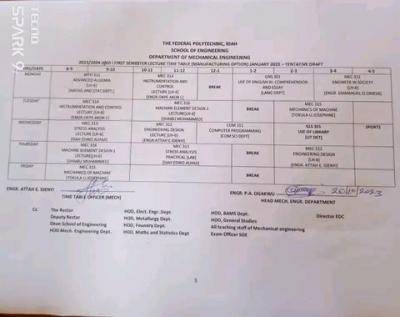
The principal of the Lead-Forte Gate College, Lekki, Lagos, Mr. Ben Greyling, has said that pupils will be more creative if they are in a good environment that guarantees academic freedom.
The educationist also argued that qualified teachers and regular pupils’ assessment were vital assets for standard education delivery.
He said, “The approach to continuous improvement of a quality academic programme includes an increased emphasis on instructional training; revised content and performance standards; curriculum realignment and adoptions; regular assessment of student performances; systematic and continuous student report.
“As teachers, we believe effective teaching brings quality to, and is accountable for, the quality of educational programmes and student support services. We recognise that academic freedom is a catalyst for creativity and innovation; and that technology enhances the educational experience.”
The college, he said, had some of the things that prepare students for lifelong and creative roles.
The South-African principal, however, advised schools to adopt strategies that would aid continuous pupils’ development in a diversified society.
He said, “To raise standards would not itself improve pupils’ performances. Pupils should be engaged in the process and not lose faith in the goal of achieving success.
“For pupils to become fully engaged in the teaching and learning process, teachers should provide relevant and meaningful learning opportunities that create and hold students’ interest.
“The school, on the other hand, should create and support an environment that will assist students feel genuinely valued for who they are as individuals. This means inter- relationships, respect and caring for pupils’ well-being are some of the important priorities of quality education.”
The school’s Executive Director, Mrs. Yemi Lemo, called on parents to step up efforts in developing primary education.
She said, “It is the primary responsibility of the government to provide qualitative education but it is also advisable for private individuals to invest in the sector. This will guarantee the pupils and parents the kind of education they want.”


